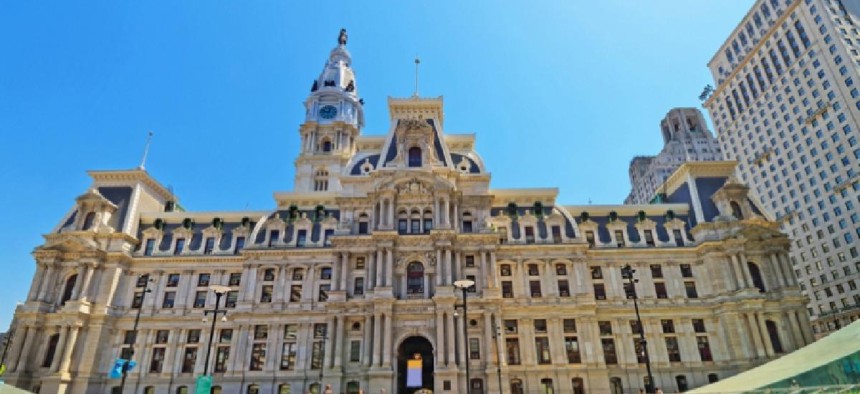Philly City Council to call for police oversight commission funding

Philadelphia City Council reconvenes today, with police misconduct high on the agenda.
Council President Darrell Clarke’s office plans to introduce a bill that will mandate increased minimum funding for the Police Advisory Commission, the citizen oversight board that has been rocked by leadership controversies since February.
The bill, which is co-sponsored by Councilman Curtis Jones, would seek a charter amendment from voters to guarantee a minimum of $500,000 annually for the police accountability group, up from its current $400,000 allocation.
The commission’s main job is to provide oversight for police misconduct, which includes everything from investigating civilian complaints to evaluating the department’s policies.
Jane Roh, Clarke’s communications director, said that the funding could be used to boost personnel, hire independent investigators and retain outside legal counsel.
“Predictable, consistent funding eliminates the uncertainty that comes from not knowing your resource level year to year and allows the Commission to plan ahead, establish programs and set benchmarks to improve accountability to the public as well,” Roh said.
The advisory commission currently has six staffers, five board members, and 13 commissioners — a diverse group that includes civil rights attorneys and advocates.
If approved by Council and then again by voters next May, the funding would shield the commission’s work from changing political winds and future budget cuts.
Appropriations for the commission have vacillated from year to year. Under former Mayor Michael Nutter’s administration, the commission went from $274,677 in fiscal year 2012 to $206,931 in fiscal year 2015.
“This has a direct impact on the work [the commission] performs and the services they are able to provide to those seeking accountability from the PPD,” Roh added.
Clarke was one of many top officials to be publicly called out by Black Lives Matter activists in recent months over police accountability issues.
The commission, which was established in 1994 under then-Mayor Ed Rendell, holds public meetings on the third Monday of every month. But the organization has been showing signs of inertia: meeting minutes have not been updated on the PAC website in more than four years.
Recent months have strained trust in the civilian watchdog group even further.
Last month, the Kenney administration appointed the commission’s newest director — longtime social worker Hans Menos — who will be the third leader to hold that post this year alone.
Ex-director Kelvyn Anderson resigned earlier this year amid allegations of sexual misconduct with a woman who had sought help from the commission. (Police have not charged Anderson with a crime.) Erica Atwood, a former Nutter official, was then appointed to serve as interim director. Under her leadership, however, the commission came under fire from activists for failing to call for an investigation into the fatal shooting of David Jones by a Philadelphia police officer in June.
Still, the watchdog group has no teeth when it comes to officer discipline – that remains the purview of the arbitration boards, which are notoriously friendly to officers under investigation.
Few Council members spoke out this summer as Mayor Jim Kenney’s administration negotiated a new contract with Fraternal Order of Police Lodge 5, the union that represents most of the city’s 6,300 uniformed officers. The resulting contract, which was signed in August, made no dramatic changes to officer discipline.
Max Marin is a reporter for Philadelphia Weekly. He can be reached on Twitter: @MAXMMARIN
NEXT STORY: House GOP sends budget-funding plan to Senate
